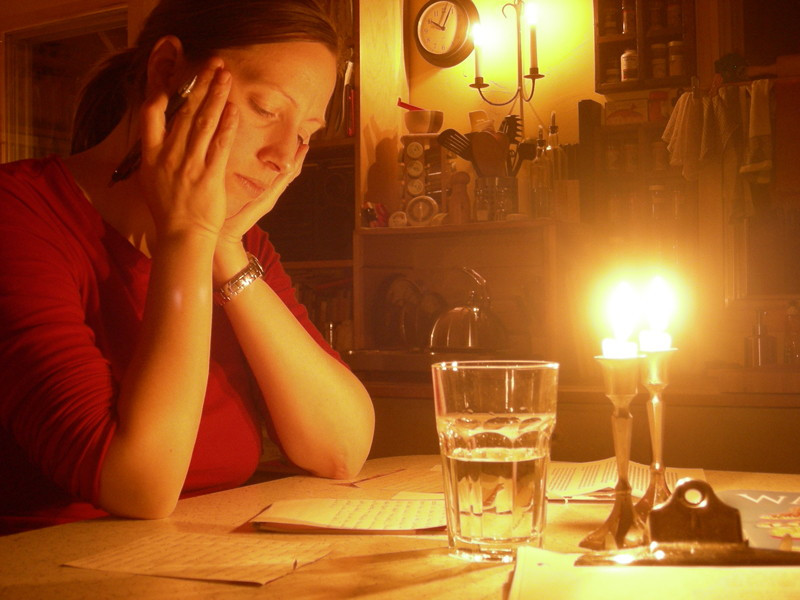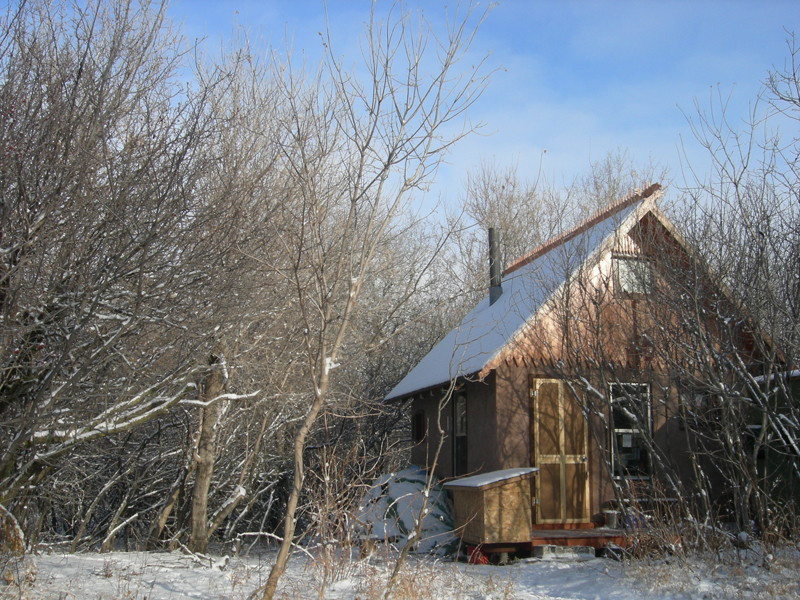Modern day pioneers in Manitoba
Voluntary simplicity is becoming more common as people begin to seek refuge from the fast pace of the 21st century
Imagine moving from a bustling neighbourhood in a big city to a small cabin with no electricity, plumbing or running water.
Would it be heaven or would it be hell?
Graham and Julie Schulz hope it will be the former; the couple can hardly wait to leave the city and live in their new home just outside of Vita, Man.
“For years we’ve been planning it,” explained Julie, 23.
“We went to Italy to do WWOOFing (World Wide Opportunities on Organic Farms) and there we saw people living off the land and they just looked so happy having absolutely no money. They were just working in the fields and enjoying just being able to live life and not have to pay anything to anybody. It was cool to see people actually living like that.”
Their new home, Cornerstone Farm, will be nothing but a trailer in a farmer’s field with a hand-pump well, a wood stove and no electricity or running water. The Schulzs love the idea so much, they plan to never return.
“For me I’m just counting down the days until I can leave the city,” Julie said. “Once I’m out there, I can’t imagine moving back to the city. We’re not like that.”
But why would someone give up all the advances and technology that modern day society offers?
Mark Burch, who teaches a class on voluntary simplicity at Menno Simons College, says the desire to live simply has been around for nearly 3,000 years. Burch’s popular class teaches both the history and current application of living simply and in a way that can bypass consumer values and culture.
“ Simple living is all about hope, and about creating the kind of future we want and going beyond consumer culture, which is currently suicidal and self-destructive. In many ways it’s less stressful because we have less debt, more free time, and more energy and attention for things that matter more.
Mark Burch, instructor, Menno Simons College
“There seems to be considerable interest among students who have heard enough bad news and want some positive direction for their lives,” explains Burch, who has authored four books on the subject. “Simple living is all about hope, and about creating the kind of future we want and going beyond consumer culture, which is currently suicidal and self-destructive.
“In many ways it’s less stressful because we have less debt, more free time, and more energy and attention for things that matter more, more energy to build community, and also a smaller ecological footprint.”
It’s an adventure that isn’t being sought out solely by suburban-sick Winnipeggers, either.
Kurt Armstrong, 34, his wife Erika, 36, and their two children, Mollie and Jackson, went from a home in a bustling East Vancouver neighbourhood to a 196 square foot cabin near Kola, Man. “The Kola Experiment” lasted just over a year, from July 2007 until September 2008.
“It was an idea that my wife had for a long time. The cabin is actually on her parents’ property,” said Kurt Armstrong.
“For about four years she told me, ‘Wouldn’t it be fun to go back there and live in a cabin?’ And I didn’t think it would be at all. But we started thinking about food and waste, and where our food comes from and where our waste goes.”
To survive, the Armstrongs picked wild berries, hunted for deer and grew their own produce. To keep track of their waste they took all of their garbage to the dump and used an outhouse.
“It was only meant to be a one year experiment, but it was certainly a relief to be all done, at least for me,” he said. “What did we take away from it? I think we’re probably more grateful for everyday things like running water.”
The Schulzs agree they have a lot of hard work ahead of them, but it’s worth it.
“You’ve got to be really dedicated, you’ve got to really prepare to struggle to get out there. We thought we were going to get our trailer out there months ago,” said Graham.
“If people want to do it, and are just thinking about doing it, I’d go and stay at a farm that’s doing it,” added Julie. “Go in the middle of the summer when the mosquitoes are really bad, or in the middle of the winter when it’s really cold, to see.
“It’s an awesome way to live but you have to be prepared for some super unpleasant situations.”
Although both couples lived in single-family units, there are a number of co-operative farms in Manitoba wherein entire communities live simply. Northern Sun Farm Co-op (near Steinbach, Man.) and Prairie’s Edge Eco-Village (near Whiteshell Provincial Park) have been living simply for 10 years.
“It’s inspiring to see that you can’t do it only for one year or two years, you can do it for a long time,” said Julie.
Published in Volume 65, Number 3 of The Uniter (September 16, 2010)









